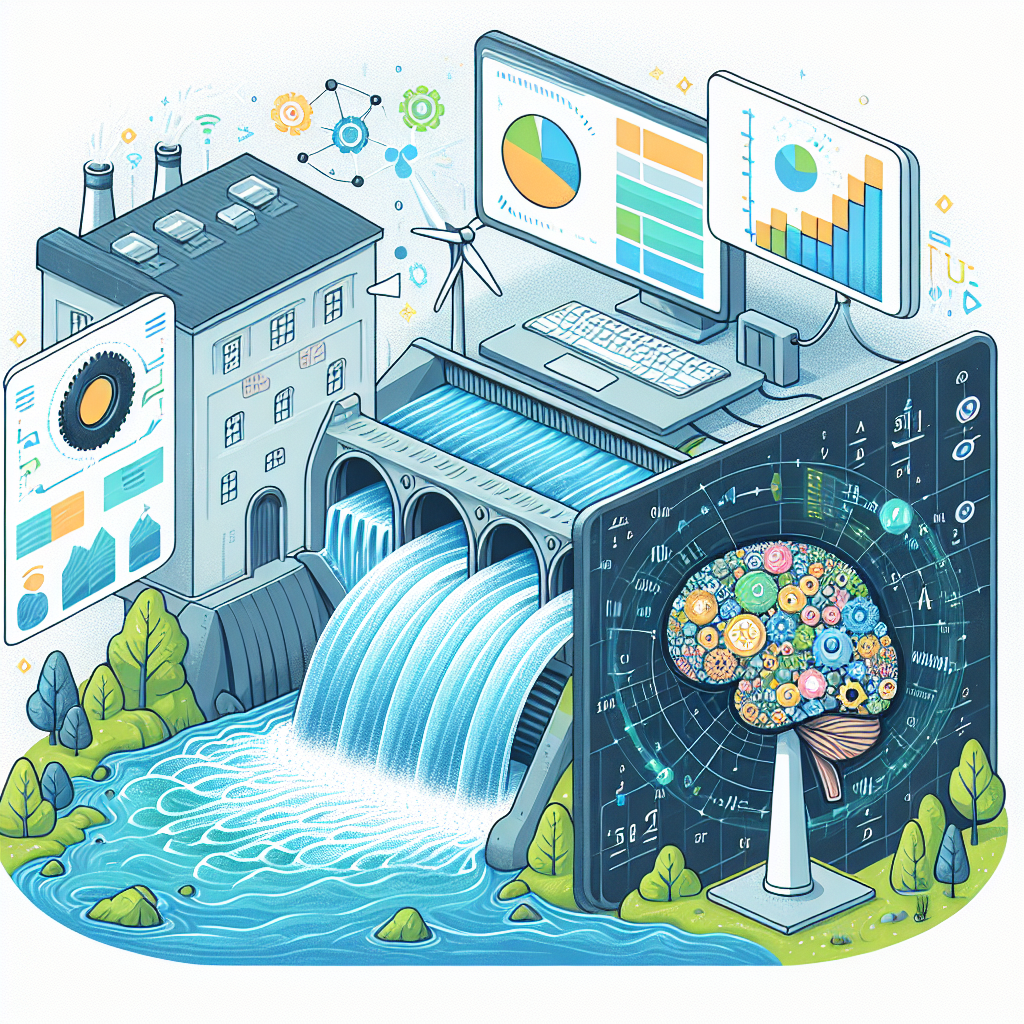Hydroelectric power has been a reliable and sustainable source of renewable energy for many years. However, as technology advances, there are new ways to enhance the efficiency and effectiveness of hydroelectric power plants. One such way is by incorporating artificial intelligence (AI) into the operations and management of these facilities.
AI has the potential to revolutionize the way hydroelectric power plants are run, by optimizing processes, predicting maintenance needs, and minimizing downtime. In this article, we will explore how AI can be used to enhance hydroelectric power, the benefits it can provide, and the challenges that may arise.
### How AI can enhance hydroelectric power
AI can be used in a variety of ways to enhance hydroelectric power generation. One of the key ways AI can improve efficiency is through predictive maintenance. By analyzing data from sensors and equipment, AI algorithms can detect patterns and anomalies that indicate potential issues before they occur. This allows operators to schedule maintenance proactively, reducing the risk of unexpected downtime and costly repairs.
Another way AI can enhance hydroelectric power is through optimization of operations. AI can analyze data from various sources, such as weather forecasts, energy prices, and water levels, to optimize the generation of electricity. By adjusting the output of the turbines based on real-time data, AI can maximize efficiency and reduce costs.
AI can also be used to improve safety and security at hydroelectric power plants. By analyzing video feeds and monitoring equipment, AI can detect potential hazards and alert operators to take action. This can help prevent accidents and ensure the smooth operation of the facility.
### Benefits of using AI in hydroelectric power
There are several benefits to incorporating AI into hydroelectric power plants. One of the main advantages is increased efficiency. By optimizing operations and maintenance, AI can help maximize the output of electricity and reduce costs. This can result in higher profits for the plant operators and lower prices for consumers.
Another benefit of using AI in hydroelectric power is improved reliability. By predicting maintenance needs and detecting issues before they occur, AI can help prevent unexpected downtime and ensure the smooth operation of the facility. This can result in a more stable power supply and increased customer satisfaction.
AI can also help reduce the environmental impact of hydroelectric power generation. By optimizing operations and reducing waste, AI can help minimize the carbon footprint of the plant. This can help plant operators meet environmental regulations and contribute to a more sustainable energy future.
### Challenges of using AI in hydroelectric power
While there are many benefits to using AI in hydroelectric power, there are also challenges that need to be addressed. One of the main challenges is data quality. In order for AI algorithms to be effective, they require accurate and reliable data. Plant operators may need to invest in new sensors and equipment to ensure that the data being collected is of high quality.
Another challenge is the integration of AI into existing systems. Many hydroelectric power plants have been operating for decades and may have outdated infrastructure that is not compatible with AI technology. Plant operators may need to invest in new software and hardware to integrate AI into their operations.
There are also concerns about the security of AI systems. As AI becomes more integrated into critical infrastructure, there is a risk of cyber attacks and data breaches. Plant operators will need to implement robust security measures to protect their systems from hackers and other threats.
### FAQs
1. How can AI improve the efficiency of hydroelectric power plants?
AI can improve efficiency by optimizing operations, predicting maintenance needs, and reducing downtime. By analyzing data from sensors and equipment, AI algorithms can detect patterns and anomalies that indicate potential issues before they occur. This allows operators to schedule maintenance proactively, reducing the risk of unexpected downtime and costly repairs.
2. What are the benefits of using AI in hydroelectric power?
Some of the benefits of using AI in hydroelectric power include increased efficiency, improved reliability, and reduced environmental impact. By optimizing operations and maintenance, AI can help maximize the output of electricity, reduce costs, and minimize the carbon footprint of the plant.
3. What are the challenges of using AI in hydroelectric power?
Some of the challenges of using AI in hydroelectric power include data quality, integration with existing systems, and security concerns. Plant operators may need to invest in new sensors and equipment to ensure that the data being collected is of high quality. They may also need to invest in new software and hardware to integrate AI into their operations and implement robust security measures to protect their systems from cyber attacks.
4. How can AI improve safety and security at hydroelectric power plants?
AI can improve safety and security by analyzing video feeds, monitoring equipment, and detecting potential hazards. By alerting operators to take action, AI can help prevent accidents and ensure the smooth operation of the facility.
In conclusion, AI has the potential to enhance hydroelectric power by improving efficiency, reliability, and safety. While there are challenges that need to be addressed, the benefits of using AI in hydroelectric power are significant. By incorporating AI into their operations, plant operators can maximize the output of electricity, reduce costs, and contribute to a more sustainable energy future.

